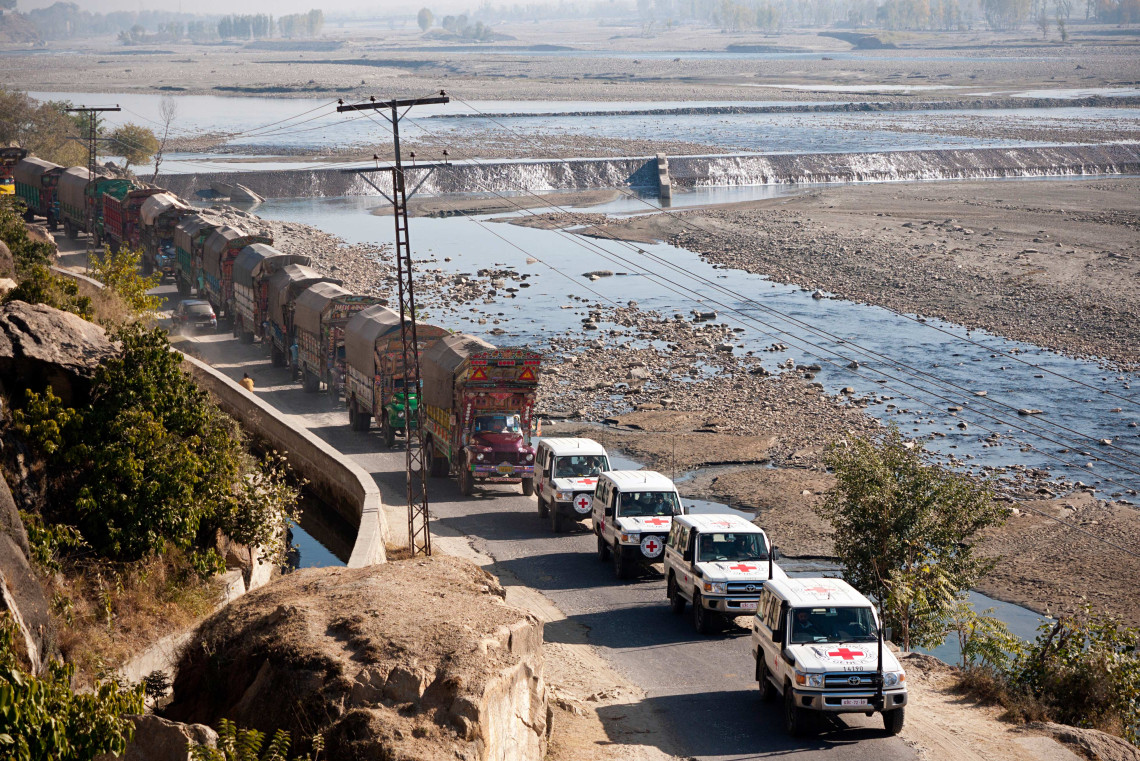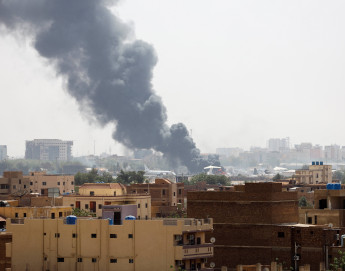
Humanitarian access: What the law says
Who is primarily responsible for meeting the needs of the civilian population in times of armed conflict?
Parties to an armed conflict have the primary responsibility to meet the basic needs of the civilian population under their control. In a situation of occupation, this responsibility is even clearer, the 1949 Fourth Geneva Convention foreseeing that an Occupying Power has - to the fullest extent of the means available to it - the duty to ensure the food, medical supplies, and other supplies essential to the survival of the population if the resources of the occupied territory are inadequate.
What are the main IHL rules in relation to humanitarian access?
First, impartial humanitarian organizations (such as the ICRC) have the right to offer their services to carry out humanitarian activities - also known as the "right of initiative". Nothing under IHL restrains the right of impartial humanitarian organizations to offer their services. Such offer of services cannot be interpreted as interference in States' internal affairs, nor as a recognition or a support to a party to the conflict.
Second, these humanitarian activities are subject to the consent of the parties "concerned" because the proposed humanitarian activities are to be undertaken in their territory or in the areas under their effective control; but the decision to consent is not discretionary. For example, if an impartial humanitarian organization can assist civilians threatened with starvation, the party concerned is obliged to give consent. The party concerned could legitimately reject an offer of service only if there are no humanitarian needs in the area, or if the offer of service comes from an organization that does not qualify as impartial and is not humanitarian in nature.
Third, parties to an armed conflict must allow and facilitate the rapid and unimpeded passage of humanitarian relief for civilians in need, subject to their right of control. In other words, the parties are under an obligation to cooperate and to take positive action to facilitate the tasks of relief personnel. This may include simplifying administrative formalities as much as possible to facilitate visas or other immigration issues, taxation, as well as import and export procedures, field trip approvals, and possibly privileges and immunities necessary for the humanitarian relief activities of an impartial humanitarian organization.
When it comes to the movement of humanitarian relief personnel and objects, IHL foresees an obligation of the parties to the conflict to ensure freedom of movement essential to the exercise of their functions. Only in case of imperative military necessity may their movements be temporarily and geographically restricted.
In occupied territories that are inadequately supplied, the Occupying Power is bound not only to accept the offer of services, but also to facilitate them by all the means at its disposal. It must also permit the free passage of relief consignments and guarantee their protection.
How can States make sure that relief is not diverted for military purposes?
Once consent has been given, relief schemes must be allowed and facilitated by all parties concerned, even if the relief is intended for the population under the control of the enemy. However, the parties have a right of control over humanitarian operations and can, for instance, search consignments and regulate their passage according to prescribed times and routes. Yet, this may not unduly delay humanitarian relief operations, impede their rapid deployment, or make their implementation impossible. Otherwise, this would be substantively equivalent to an unlawful denial of consent.
Military necessity can be invoked in exceptional circumstances in order to regulate – but not prohibit altogether – humanitarian access and can only temporarily and geographically restrict the freedom of movement of humanitarian personnel. In fact, it is today recognized that military necessity cannot be used under IHL to turn down a valid offer of services and to deny in their entirety the humanitarian activities proposed by impartial humanitarian organizations.
Is there an obligation under IHL to guarantee a "safe access" for humanitarian relief personnel?
Humanitarian relief personnel, and objects used for humanitarian relief operations, must be respected and protected. This rule is a necessary corollary of the rules providing for rapid and unimpeded access for humanitarian relief activities and freedom of movement of humanitarian relief personnel. This means first and foremost that they must not be attacked – which also follows from the fact that they are civilians. To this end, the Parties should provide clear and strict instructions to their armed forces to protect humanitarian relief and personnel, including dissemination about the respect for the Red Cross and Red Crescent emblems.
The obligation to "protect" implies a positive obligation to take steps to ensure that humanitarian personnel can carry out their activities without any undue interference, notably arrest. The overarching objective of the obligation to respect and protect is to ensure that humanitarian personnel can reach victims of armed conflict, whether designated or not under counter-terrorism regulations and sanctions.
What are the obligations of third parties in relation to humanitarian access?
Under IHL governing international armed conflicts, all States concerned, including non-belligerent states, have the obligation to allow and facilitate relief operations intended for inadequately supplied populations. The obligation to allow free passage includes initial entry into the territory and movement within it. It also includes any movement of relief consignments, equipment and personnel accompanying such consignments or carrying out their humanitarian role - in other words, all movements required to deliver humanitarian relief effectively.
Treaties governing non-international armed conflict do not contain an express obligation for States which are not party to the conflict to allow and facilitate relief operations. However, there are expectations that States – even if not Parties to the conflict – would not oppose the use of their territory by impartial humanitarian organizations in order to reach victims of the non-international armed conflict. If those States were to refuse to allow and facilitate relief schemes, it would in effect preclude the humanitarian needs of the victims to be addressed and thus render void the consent to an offer of services given by the parties to the conflict.
In addition, IHL foresees specific rules requiring all States to facilitate the humanitarian activities carried out by the ICRC and other impartial humanitarian organizations.
Humanitarian pauses, corridors, ceasefires… are they defined by international humanitarian law?
— ICRC (@ICRC) November 23, 2023
Whatever the term used, warring parties have obligations to protect civilians and aid workers.@CDroegeICRC explains more here pic.twitter.com/xxTba4E89l


